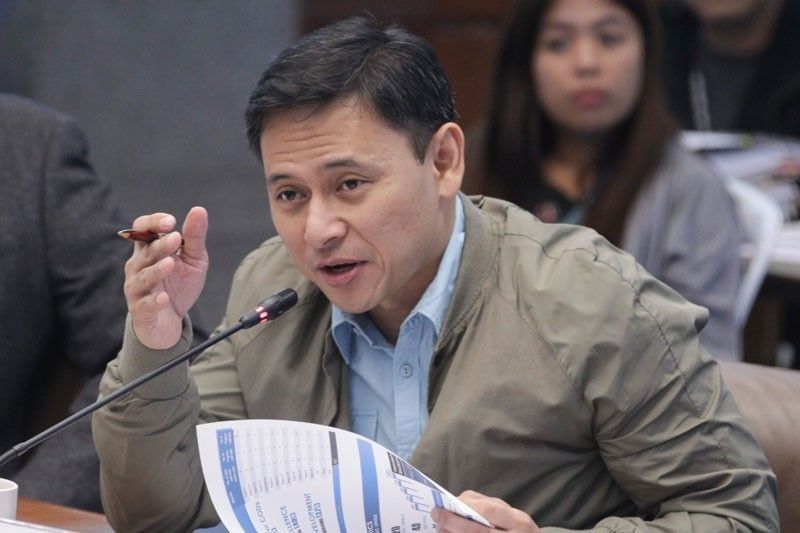Angara: BARMM assured of 2019 funding

MANILA, Philippines — The newly established Bangsamoro government is assured of P30 billion to bankroll development projects and rehabilitation of areas affected by conflict in 2019 with the signing into law of the P3.757-trillion national budget, reelectionist Senator Sonny Angara said.
Angara said the 2019 General Appropriations Act recently signed by President Duterte includes the allocation for the Bangsamoro Autonomous Region in Muslim Mindanao (BARMM), which replaced the Autonomous Region in Muslim Mindanao (ARMM).
He added that the amount was initially allocated for the ARMM, but would be transferred to the BARMM to serve as its operational funds for this year.
“This is in fulfilment of the promise to give the Bangsamoro government full fiscal autonomy to achieve economic self-sufficiency and genuine development,” said Angara who, as chairman of the Senate committee on local government, co-sponsored Republic Act 11054 or the Bangsamoro Organic Law (BOL) creating the BARMM.
“With this spending package, we pin our hopes on the leaders of the new autonomous political entity to change the lives of our Mindanaon brothers and sisters who equally deserve opportunities to be employed, educated and cared for by the government,” said the senator.
He said the BARMM government will be given a five percent annual block grant from the national government, which will be automatically appropriated in the national budget. In the first year following the effectivity of the Bangsamoro law, the block grant should be five percent of the net national internal revenue tax collection and the net collection of the Bureau of Customs in the last three fiscal years.
The BOL – a realization of the long peace negotiations between the government and the Moro Islamic Liberation Front (MILF) – was overwhelmingly ratified by the Bangsamoro people during a two-part plebiscite held early this year.
In February, President Duterte formed the 80-member Bangsamoro Transition Authority to serve as the interim government in the BARMM during the transition period that will last until the first election takes place in 2022.
Presidential Peace Adviser Carlito Galvez Jr. has urged top police officials of the BARMM to help create a more conducive environment for the smooth implementation of the normalization track of the Bangsamoro peace agreement.
Galvez said that this track will primarily focus on the decommissioning of MILF rebels and assisting them and their families as they make the transition to becoming peaceful and productive members of society.
The normalization process is one of the annexes of the Comprehensive Agreement on the Bangsamoro (CAB) signed between the Philippine government and the Moro Islamic Liberation Front (MILF) in 2014.
The CAB also covers the decommissioning of MILF fighters and their weapons, as well as the transformation of several camps into progressive and resilient communities.
The Executive Order on Normalization is a comprehensive plan of the government designed to aid former combatants as they undergo the delicate transition process.
The EO includes socio-economic interventions to be carried out specifically in conflict-affected areas, as well as guidelines for the implementation of a transitional justice system that aims to promote healing and reconciliation among the people.
The national government and the MILF are now drafting the implementing rules and regulations of the said EO.
Galvez said it is very important for the police, in particular, and the security sector, in general, to fully understand the intricacies of the Bangsamoro peace process.
Angara said the BOL is a “lasting and valuable legal solution to the long-festering problem in Mindanao, so that ultimately peace and prosperity can flourish.”
In 2015, the population in the region stood at 3.78 million, according to data from the Philippine Statistics Authority. One in two persons in the region was poor, or about 53.7 percent of its population, the government statistics office said.
Under the BOL, revenue sources for the Bangsamoro include taxes, fees, charges and annual block grant and revenue shares from exploration of natural resources, among others.
The law provides that 75 percent of national taxes and fees collected in the region will go the Bangsamoro government, while 25 percent will go to the national government. The 75 percent share shall “accrue” to the Bangsamoro government for the first 10 years. – With Jose Rodel Clapano
- Latest
- Trending


























